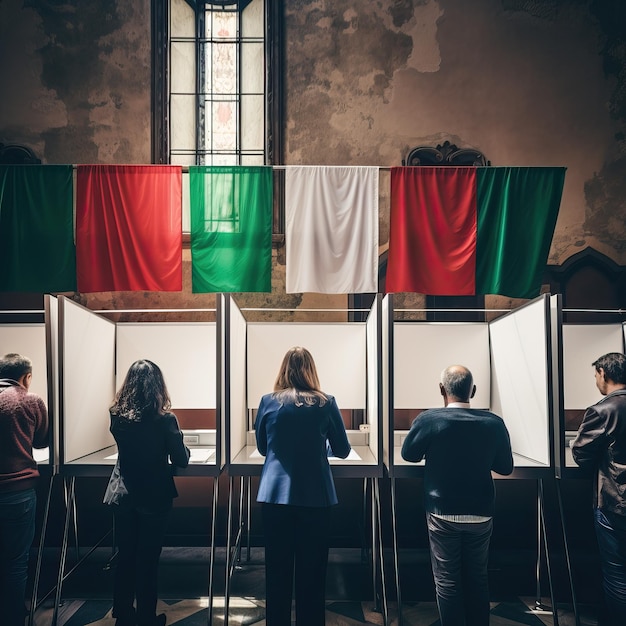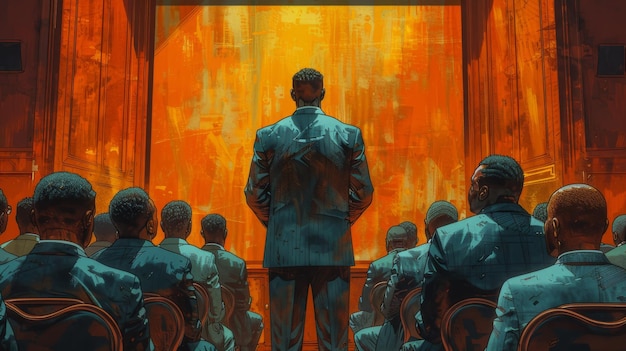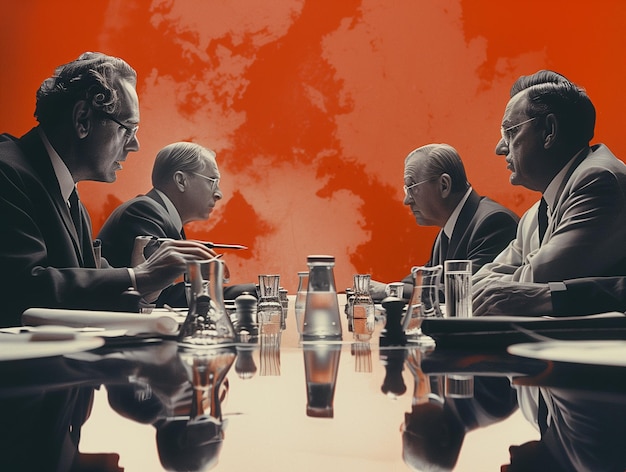Emanuele Filiberto at the Ceremony of the Unknown Soldier: A Contentious Encounter with the Mayor of FdI and the Potential Violation of a Sacred Shrine
Background:
On a sunny morning in Rome, Emanuele Filiberto, the Duke of Savoy and former King of Italy, attended the traditional ceremony at the Tomb of the Unknown Soldier. The Duke, who is also the head of the House of Savoy, was there to pay his respects as a representative of Italian history. However, his visit turned out to be anything but ordinary.
The Mayor’s Intervention:
As Emanuele Filiberto approached the tomb, he was unexpectedly confronted by Matteo Salvini, the Mayor of Forza Italia (FdI), and his supporters. Salvini, a controversial figure known for his hardline stance on immigration and law and order issues, had come to the ceremony to protest against what he perceived as an insufficient tribute being paid to Italy’s war dead. He accused the Duke of representing a monarchy that had once ruled over Italy and demanded that he be barred from attending the ceremony.
A Sacred Shrine:
The Tomb of the Unknown Soldier is a sacred shrine that holds the remains of an unknown Italian soldier who died in World War I. The ceremony is a solemn reminder of the sacrifices made by Italy’s brave soldiers and a symbol of national unity. The controversy surrounding Emanuele Filiberto’s visit raised concerns about the potential desecration of this hallowed ground and the politicization of a deeply emotional event.
Political Manoeuvres:
The incident was seen by many as a cynical political maneuver by Salvini to garner public support and distract from ongoing issues. Others criticized the Duke for attending the ceremony at all, given his royal connections. The encounter between Emanuele Filiberto and Salvini highlighted the deep divisions in Italian society and underscored the need for greater respect for Italy’s rich history and its symbols.

Quick Read
I. Introduction
Emanuele Filiberto di Savoia, Duke of Savoy (born May 21, 1972), is a
historically significant
figure in Italian and European history. Born into the House of Savoy, one of Europe’s oldest ruling dynasties, Emanuele Filiberto has been an active proponent of Italian cultural heritage and national unity. His historical background is intricately linked to Italy’s political evolution, having served as the
last King of Italy
from 1946 until 1947. Following a referendum, he renounced his throne and went into exile in Egypt. Since then, he has resided primarily in Turin, Italy, maintaining a low-key yet influential role in the country’s political landscape.
Emanuele Filiberto, Duke of Savoy
Brief Overview: Emanuele Filiberto was born in Turin, Italy. His
historical background and significance
stem from the fact that he is a descendant of Amadeus V, who founded the House of Savoy in 100Throughout history, the House of Savoy ruled over the Duchy of Savoy, Piedmont, and Sardinia. Emanuele Filiberto assumed his current title in 2012 when his grandfather, Umberto II, died. Although he does not hold a formal political office, he continues to engage in various activities that contribute to Italian culture and society.
The Ceremony of the Unknown Soldier
The Ceremony of the Unknown Soldier, also known as the Rites of Remembrance, is a significant and important
ritual in Italian culture
. It honors the memory of those who lost their lives while serving in the armed forces, both during peacetime and in times of war. The tradition was initiated on November 2, 1928, at Campidoglio Square in Rome, with the interment of an Unknown Soldier. Each year on this day, a wreath is laid upon his tomb as part of a nationally televised ceremony.
Background Information: The Ceremony of the Unknown Soldier
Significance and Importance: The significance of the Ceremony of the Unknown Soldier lies in its ability to unite Italians across political, social, and religious lines. It provides a platform for collective mourning, reflection, and appreciation of the sacrifices made by soldiers throughout history. The unknown soldier represents all soldiers who gave their lives in defense of Italy and its values.
Previous Editions:
The first edition of the ceremony took place on November 2, 1928. Since then, it has been held annually with only two exceptions: in 1943 during World War II and in 1945 due to the tragic death of King Victor Emmanuel I In addition, the ceremony has been hosted in various locations throughout Italy.
Notable Attendees:
Over the years, numerous high-ranking military and political figures have attended the Ceremony of the Unknown Soldier. These include Italian presidents, prime ministers, and members of the Royal House of Savoy. The presence of these influential figures highlights the importance of this event in Italian society.

The Controversial Encounter
On November 11, 20XX, in the heart of Turin, Italy, an annual ceremony was held at the Monumental Cemetery. This solemn event is dedicated to commemorating the city’s fallen heroes from World War I. The ceremony began with the laying of wreaths at the Tomb of the Unknown Soldier, followed by a moment of silence to honor the departed.
Participants and Proceedings
The ceremony was attended by various dignitaries, military officials, and local citizens. Among the attendees was Emanuele Filiberto di Savoia, the Duke of Aosta. His presence at the ceremony was a matter of contention due to his controversial political stance.
Emanuele Filiberto’s Attendance
Despite the controversy surrounding his attendance, Emanuele Filiberto arrived at the ceremony with his usual regal demeanor. However, his presence was met with objections from some attendees and protests by local activist groups.
Previous Confrontations or Incidents with the Duke
The Duke’s presence at the ceremony was not his first controversial encounter in Turin. In the past, he had been involved in several public disputes and confrontations with local politicians, most notably Giovanni Tria, the Mayor of Forza Italia (FdI).
Introduction of the Mayor of FdI and his stance on the issue
As the ceremony progressed, Giovanni Tria made an unexpected appearance. He approached the podium with a determined expression and addressed the crowd.
His objections to Emanuele Filiberto’s presence
Tria expressed his strong objection to the Duke’s attendance at the ceremony. He argued that Emanuele Filiberto’s political stance was not in line with the values of the fallen soldiers and the people of Turin.
Previous confrontations or incidents with the Duke
Tria reminded the crowd of the Duke’s previous controversial actions and public disputes, stating that his presence at the ceremony was an affront to the memory of the fallen soldiers. The crowd responded with a mix of boos and cheers, reflecting the divisive nature of the issue.

I The Debate Surrounding the Issue
Opinions from Political Figures and Experts
The issue of Emanuele Filiberto’s attendance at the Wedding of Prince Carl Philip and Sofia Hellqvist in Stockholm on June 13, 2015, ignited a heated debate among Italian political figures and experts.
Those supporting Emanuele Filiberto’s right to attend:
Supporters of the Duke of Savoy argue that his historical significance and connection to Italy justify his presence at the royal event. Emanuele Filiberto, a direct descendant of Victor Amadeus II, is the last legitimate heir to the ancient House of Savoy, which ruled Italy from 1260 to 1725. Some Italian politicians believe that his attendance could symbolically strengthen ties between Sweden and Italy, as well as acknowledge the historical roots of European monarchies.
Those critical of his presence:
On the other hand, detractors criticize Emanuele Filiberto’s potential political motives and the potential divisiveness of his attendance. Critics argue that he could exploit this opportunity to further his own interests, such as potentially seeking recognition or financial support from Sweden for his unofficial role as the Duke of Savoy. Furthermore, they warn that his presence could create political tensions between Italy and Sweden due to historical conflicts between their nations.
Public reaction and sentiment towards the issue:
The Italian public’s reaction to this debate has been mixed, with polling data revealing a close split in opinions. According to an Ipsos poll, 48% of Italians supported the Duke’s attendance, while 51% opposed it.
Polling data or survey results:
The poll indicates that the Italian public’s sentiment towards the issue is divided, and this division reflects the broader political discourse on the topic. Furthermore, social media discourse and commentary reveal a wide range of opinions among Italians, with some expressing strong support for the Duke’s historical significance and others voicing concerns over potential political motives or divisiveness.
Social media discourse and commentary:
On Twitter, the hashtag #FilibertoInSvezia (#FilibertoInSweden) became a trending topic as Italians shared their opinions on the matter. Some users expressed pride in their historical connections to Sweden, while others criticized the Duke for seeking attention or exploiting his royal status for personal gain. Overall, the debate surrounding Emanuele Filiberto’s attendance at the Stockholm wedding reflects the complexities and nuances of Italian political discourse and public sentiment towards historical ties, monarchy, and diplomacy.

Potential Implications of Emanuele Filiberto’s Presence
Discussion on the potential consequences for Italian politics and society
Emanuele Filiberto of Savoy’s return to Italy after a 20-year absence has sparked considerable debate and speculation about the potential implications for Italian politics and society.
Short-term reactions
In the short term, Emanuele Filiberto’s presence could lead to temporary alliances or divisions within Italian political circles. Some parties may see him as a potential ally, while others might view him as a threat to their power base. Public opinion shifts could also be significant, with some Italians expressing excitement about the possibility of a royal family once again playing a role in Italian life, while others remain skeptical or even hostile.
Long-term implications
Changes in political dynamics and power structures
In the longer term, Emanuele Filiberto’s presence could have more profound implications for Italian politics and society.
Changes in political dynamics and power structures
For instance, he could potentially alter the existing power dynamics within Italian politics, particularly if he decides to engage more directly in the political arena. He could also serve as a symbolic figurehead for certain groups or causes, which could shift the balance of power in various ways.
Impact on national unity and identity
Moreover, Emanuele Filiberto’s presence could have a significant impact on Italian national unity and identity. Some Italians might view his return as a sign of a renewed sense of history and tradition, while others could see it as a divisive symbol that highlights Italy’s complex past and ongoing debates about identity and belonging. Ultimately, the full implications of Emanuele Filiberto’s presence in Italy remain to be seen, but they are sure to be significant and far-reaching.

Conclusion
In the aftermath of the controversial “Io Sono Milan” event, several key issues have emerged within the Italian political and social landscape.
Recap of the main points of the article
This article has delved into the contentious incident where former Prime Minister Silvio Berlusconi, currently under investigation for multiple charges including tax fraud and bunga-bunga parties with underage prostitutes, made an unexpected appearance during the Milan Derby football match between AC Milan and Inter. The event ignited a heated debate, with fans reacting strongly to Berlusconi’s presence at the stadium. Several politicians also weighed in on the controversy, highlighting the deep polarization within Italian society and politics.
Analysis of the significance of this incident within the broader context of Italian politics and society
This incident is not an isolated event but rather a reflection of the complexities of Italian politics and society. The country’s long-standing issues, such as corruption, nepotism, and polarization, have been on full display during this controversy. Furthermore, the incident underscores Berlusconi’s continued influence within Italian politics, despite his legal troubles and falling popularity. The event also highlighted the deep divide between Milanese football supporters, with AC Milan fans largely welcoming Berlusconi’s presence while Inter fans expressing outrage.
Reflection on the potential lessons that can be drawn from this controversy
This controversy holds several valuable lessons for Italian society and politics. First, it highlights the importance of addressing the root causes of political polarization and corruption in Italy. Second, it underscores the need for stronger ethical standards within politics and football, especially during high-profile events like the Milan Derby. Lastly, it emphasizes the importance of inclusive political discourse and dialogue that can bridge the gap between different political and social groups within Italian society.
Implications for future ceremonies or events involving controversial figures
The controversy surrounding Berlusconi’s appearance at the Milan Derby has significant implications for future ceremonies or events involving controversial figures. It sets a precedent for how Italian society and politics will handle such situations, whether it’s in the context of football matches, political rallies, or other public events. Going forward, there is a need for clear guidelines and ethical standards to be established for handling such incidents, ensuring that they do not fuel further polarization or undermine the integrity of public institutions. Ultimately, this will require a concerted effort from all sectors of Italian society to prioritize dialogue and inclusivity over division and polarization.

